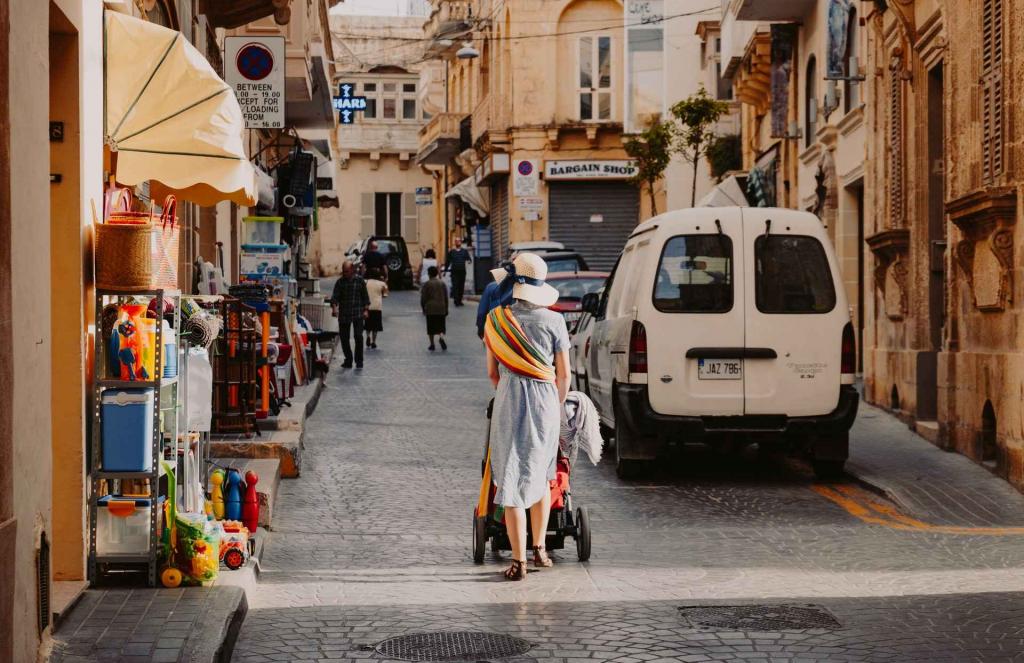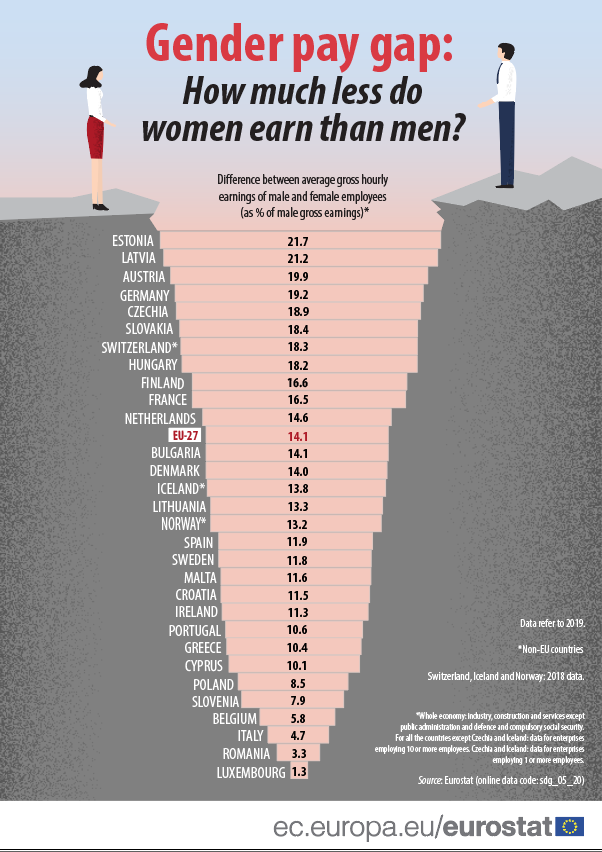Thessaloniki gets ready for its metro launch in November
The underground rapid transit lines have been under construction for almost two decades due to various project delays
 TheMayor.EU logo
TheMayor.EU logo 
One of the primary setbacks for women in their careers is the fact that they are still the primary child-care givers
Despite years of concentrated efforts to bridge the gender wage gap, the European Union still has a lot of work to do
This year, 10 November is Equal Pay Day in the European Union. This means that from Wednesday until the end of the year, women will symbolically be working for free due to the gender pay gap. Despite the fact that equal pay between men and women has been codified into EU law since at least the 70s, the pay gap is a persistent problem across the block.
Currently, the EU average pay gap between men and women sits at 14.1% and, according to the EU Commission, that is the equivalent of roughly two months of salary. This would mean that, broadly speaking, up to 10 November, men have earned as much as women will for the entire year.
Despite years of concentrated effort and progress in the area, unequal pay is a persistent issue. According to Eurostat, this is mainly due to the fact that women are still the primary caregivers when it comes to children and sometimes skipping years of their careers has a cumulative effect on the overall wages of women.
After they come back to work, they often end up in part-time jobs or doing low skilled labour. EU Commissioners Vera Jourova, Nicolas Schmit and Helena Dalli were quoted in a press release saying that despite numerous improvements to social and professional life, the wage gap seems to be significant and with deep cultural roots.
According to a study by Eurostat on the gender pay gap, there is a significant difference between member states. For instance, Estonia has the highest pay gap of 21.7%, while Luxembourg has the lowest with 1.3%.
Austria is another country, among the highest. There, the gap is around 20% and the local Equal Pay Day was on 25 October. Romania, on the other hand, has the second-lowest gender pay gap of 3.3%, showing that wage equality is not that dependent on a country’s wealth.

A visualisation of the gender wage gap in the European Union, Source: Eurostat

The underground rapid transit lines have been under construction for almost two decades due to various project delays

Now you can get your wine in Talence by paying directly in Bitcoin

That’s because the state has to spend money on updating the railway infrastructure rather than subsidizing the cost of the popular pass

Rethinking renewable energy sources for the urban landscape

The examples, compiled by Beyond Fossil Fuels, can inform and inspire communities and entrepreneurs that still feel trepidation at the prospect of energy transition

Now you can get your wine in Talence by paying directly in Bitcoin

The 10th European Conference on Sustainable Cities and Towns (ESCT) sets the stage for stronger cooperation between the EU, national and local level to fast track Europe's transition to climate neutrality.

At least, that’s the promise made by the mayor of Paris, Anne Hidalgo

The underground rapid transit lines have been under construction for almost two decades due to various project delays

At least, that’s the promise made by the mayor of Paris, Anne Hidalgo

Hostal de Pinós is located in the geographical centre of the autonomous region

Despite its church-y name, the district has long been known as the hangout spot for the artsy crowds

Urban dwellers across the EU are having a say in making their surroundings friendlier to people and the environment.

Forests in the EU can help green the European construction industry and bolster a continent-wide push for architectural improvements.

Apply by 10 November and do your part for the transformation of European public spaces

An interview with the Mayor of a Polish city that seeks to reinvent itself

An interview with the newly elected ICLEI President and Mayor of Malmö

A conversation with the Mayor of Lisbon about the spirit and dimensions of innovation present in the Portuguese capital














